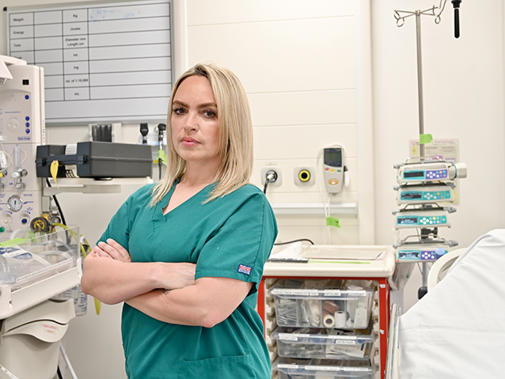When I entered the specialty of emergency medicine there was nothing else I could imagine doing.
We get to help patients at their most significant times of need and treat everyone from neonates to extreme old age, covering just about every acute condition conceivable.
It’s a real privilege to be able to help people when they need it most, and work in a field so diverse and so exciting. Or at least it was.
For the last few years now, the workload has become increasingly unsustainable. When the four-hour targets came in, we largely met them. That’s changed in a big way.
As the UK bed base has been progressively cut for a growing and ageing population needing more healthcare than ever before, achieving those targets is a thing of the past and doing the job has become much more difficult.
The mean response time to category one ambulance calls is at its highest since records began. Attendances at emergency departments are climbing and performance figures are the worst they have been since records began. Hospitals are full, with trusts nationally working at or close to capacity constantly.
When hospitals are full, emergency departments are unable to move patients out of cubicles and on to wards, leading to ambulances arriving at full emergency departments with no free cubicles to offload patients into.
We are all familiar with the scenes that have made headlines, of patients queuing in corridors waiting for a space in which to receive much-needed treatment.
The Association of Ambulance Chief Executives released a report indicating that as many as 160,000 patients may be coming to harm as a result of handover delays. The Royal College of Emergency Medicine analysed the effects of long lengths of stay in emergency departments and the crowding that creates. It found that an estimated 4,519 patients are likely to have died in 2020-21 as a direct result.
For staff such as myself working in such environments, it has become incredibly stressful. Those numbers cannot be ignored – each of us carries the weight of them, and the constant fear that today might be the day we don’t get to someone in time.
The word used time and again is ‘relentless’. There is no let up. Shifts start with full departments and long waits. Time is spent frantically assessing and reassessing the queuing patients to determine who needs the next available space.
When the ‘stand by phone’ rings, forewarning us of an incoming critically ill patient or cardiac arrest, it is often an immensely stressful few minutes shuffling patients around to create a cubicle to receive them. Somehow, we always manage it.
On top of all of this, COVID hasn’t gone away and Omicron rates are rising again. Our departments still have to be split into ‘red’ and ‘green’ zones. If the red zone is full and another COVID patient arrives there is often no choice but to leave them in the ambulance outside. It’s too risky to bring them indoors among other patients who may be vulnerable, but it feels incredibly risky leaving them in the ambulance.
We know we need to see time-critical conditions quickly. Every minute counts in trauma, heart attacks, strokes, sepsis and many more conditions including COVID for those severely affected. It’s a constant worry that we won’t get to someone quick enough, that they will come to harm because they waited too long.
As the consultant in charge, this weighs heavily on my mind every shift. With litigation at an all-time high in emergency medicine, the fear of reprisal if something is missed is enormous, but worse than that is the fear that a human being could face significant suffering if we are unable to give them the care they need.
Every member of staff carries this worry and although we know we are doing our best, it frequently feels as though our best is not enough.
Breaks are missed, home times are delayed, days off are sacrificed to fill rota gaps but the more people take on, the more at risk they are of burnout – something that threatens everyone working in the sector.
Simply put, we cannot continue this indefinitely. More must be done to support hospitals to meet the rising demand.
More beds are needed to admit patients into. More social care is needed to enable discharges, freeing up capacity in the system. Recruitment and retention of staff must be an absolute priority for the Government.
We want to be there to look after the health of the nation, but we can’t be if the health of the NHS and those that work for it are not prioritised.
Den Langhor is the BMA consultants committee’s emergency medicine specialty lead

